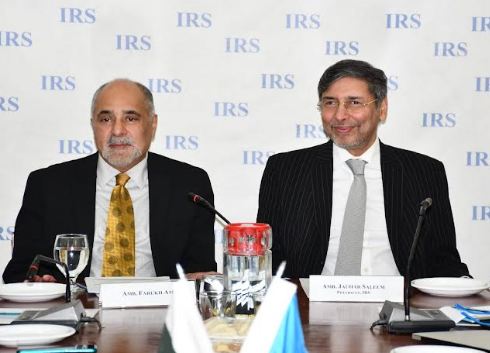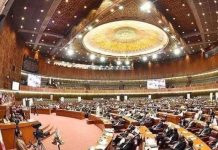ISLAMABAD, FEB 19: /DNA/ – At a discussion hosted by the Institute of Regional Studies (IRS), Amb Farukh Amil, Chairman of Intellectual Property Rights Organization-Pakistan, emphasized that cultivating a culture of Intellectual Property Rights (IPR) was essential for transforming Pakistan from a consumer nation into a startup nation. He also stressed the urgent need for increased awareness of IPR among the youth in Pakistan to facilitate this significant transformation.
In his keynote address, Amb Amil highlighted IPO-Pakistan’s initiatives to join international IP treaties and to promote the use of IP tools, including trademarks, copyrights, patents, and geographical indications.
Speaking on the occasion, Amb Jauhar Saleem, President of IRS, noted that this was an “ age of branding” where Pakistan had been not been able to adopt and brand its products resulting in economic stagnation. He underscored the importance of incentivizing innovation and creativity through fostering a culture of intellectual property rights, as there was a general lack of motivation among people to innovate or invent without adequate safequard of their intellectual property rights. He lauded the efforts of IPO in this regard and expressed willingness to collaborate on promoting awareness, research, and advocacy.
Amb Amil also explained how intellectual property rights (IPR) and national economic security were intertwined, as inadequate IPR can jeopardize food security and economic growth. He noted that countries gain recognition through their brands, and lamented that Pakistan is falling behind in this area. He emphasized the necessity of including IPR in the national curriculum to help students recognize the importance of protecting their rights early on, warning that its exclusion would make the IPR an elitist topic.
The event was well attended by students and researchers and the interactive session underscored a strong desire for deeper knowledge on the subject.












